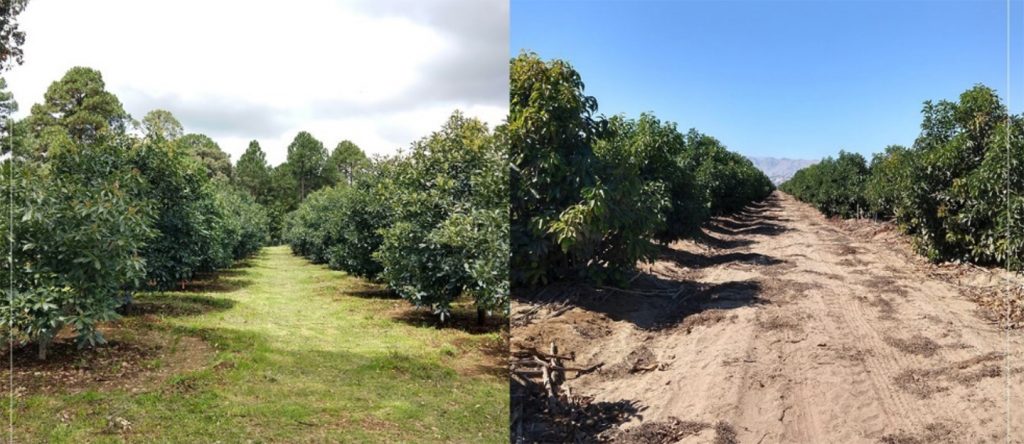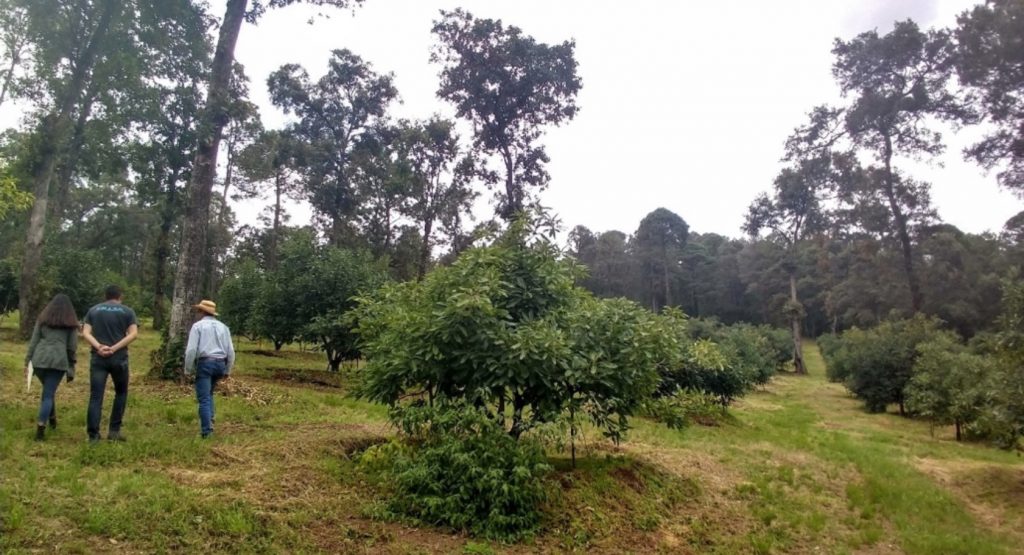Audrey Denvir 2019 Field Report
2018 CLAG Field Study Award Report:
Audrey Denvir, Doctoral Candidate, Department of Geography and the Environment, University of Texas at Austin
Project: Avocado in Mexico and Peru: A Global Commodity Chain Analysis
In the past 20 years, the demand for avocados has increased in the United States, Europe, and most recently, China, and this has caused a fast-paced expansion of cultivation in the avocado-producing regions of the world. With the expansion of avocado agriculture comes a number of environmental, social, and political considerations. My research investigates the ecological, spatial and socioeconomic aspects the two largest avocado-producing regions in Latin America – Michoacán, Mexico and coastal Peru – in order to understand how consumer demands and interests of global capital impact these landscapes on a local level.
The purpose of this mixed methods study is to understand the ecological and social variables that have directed the expansion of avocado production as well as the ecological and social impacts of such expansion in Mexico and Peru. Fieldwork in the summer of 2019 included qualitative interviews and surveys to understand how stakeholders throughout different sectors of the commodity chains make management decisions and connect to the market. Subsequent ecological studies in the following summers will investigate the magnitude of forest and carbon sequestration loss across a gradient of increasing habitat fragmentation in the avocado landscape.

For this past field season, my overarching research question was: What factors influence the expansion of avocado cultivation in Mexico and Peru? Within this larger question were four sub-questions: (1) How do growers decide whether to grow avocado? (2) How do avocado growers connect to the global market? (3) How do changes in the avocado market affect growers? and (4) How does government policy shape the avocado commodity chain?
With the support of the CLAG Field Study Award, I was able to travel to both Peru and Mexico during the summer of 2019 and conduct 23 interviews with relevant stakeholders. Interview subjects were recruited from all sectors of the industry, including growers, packers, buyers, producer organizations, government agencies, and non-governmental organizations.
In Michoacán, Mexico, I worked with collaborators at the Universidad Nacional Autonoma de Mexico (UNAM) in Morelia. From a base of Morelia, my research assistant and I traveled to avocado orchards across central Michoacán to conduct interviews. The farms we visited were located within varying levels of fragmentation across the montane forest landscape of the state, and they included a variety of management styles from irrigated to rainfed, from organic to conventional. In Peru, I interviewed some of the large agro-industrial companies that dominate the production of avocados for export. I conducted these interviews in Lima and Ica, some of the largest areas of Hass avocado production in the country.

Preliminary findings suggest that while profits from avocado trade have noticeable positive impact on the local economy, the extent of that impact is impeded by certain political and economic structures. In Mexico, the avocado industry dominates the economy of Michoacán, and it brings with it jobs for local laborers, reduced migration out of the state, and increased disposable income for producers. Yet, large producers, who make the majority of avocado profits, have largely moved out of the region due to security concerns. Though they continue to own large orchards within Michoacán, they take their earnings with them outside the region. In Peru, the production of avocado for export is dominated by large agrobusiness, and it exists almost completely separate from smallholder avocado agriculture for the national market. This creates an even more stark division of profits, where the money from the avocado boom only reaches large companies. In both places, the neoliberal policies that spurred the explosion of avocado trade are the same policies that prevent equitable benefit across the economy.Taking a tour of an avocado orchard in Michoacán, MexicoPreliminary findings suggest that while profits from avocado trade have noticeable positive impact on the local economy, the extent of that impact is impeded by certain political and economic structures. In Mexico, the avocado industry dominates the economy of Michoacán, and it brings with it jobs for local laborers, reduced migration out of the state, and increased disposable income for producers. Yet, large producers, who make the majority of avocado profits, have largely moved out of the region due to security concerns. Though they continue to own large orchards within Michoacán, they take their earnings with them outside the region. In Peru, the production of avocado for export is dominated by large agrobusiness, and it exists almost completely separate from smallholder avocado agriculture for the national market. This creates an even more stark division of profits, where the money from the avocado boom only reaches large companies. In both places, the neoliberal policies that spurred the explosion of avocado trade are the same policies that prevent equitable benefit across the economy.
A subsequent ecological analysis in the summer of 2020 will focus on the ecological impact of land use change caused by avocado expansion in the two regions.
Please see the full report for more details.


















